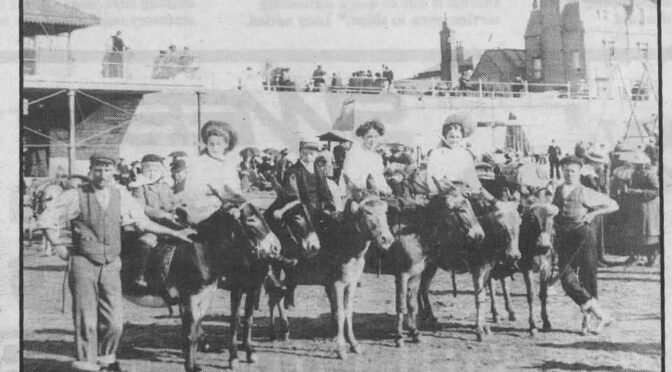Mary Ford was born in 1845 at Devonport. She married Captain James Farthing (b. 1842) who was then captain of the Julia, in 1864 at St Mary’s, Bridgwater. They had eight children, the third of whom was Charles (b. 1870). Charles married Bessie Parsons in 1893 at East Huntspill. They in turn had seven children, the sixth being Harry (Christened Henry Francis), born in 1904. Harry married Rachel Dean (b. 1912) at Bridgwater in 1935. They had one son, Frederick (b. 1936). Mary died in 1915 and Capt. Farthing in 1928.Harry lived in Adam St all his life and died in 1992, Rachel died in 2007.
Genealogical research by Alan Wheway
Recollections of Harry Farthing (87) in the early 1990s.
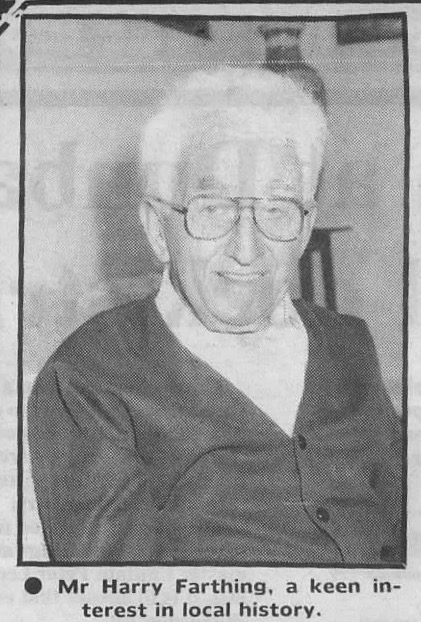
“When the weather was bad …..you would hardly see a soul on the beach and we used to call them the May Ann days. If the rain came down you just stood there and battled it out and hoped that better weather would soon come along.”
“It was my grandmother, Mary, who started the family entertainment business. She was a very determined woman who decided she ought to do something to make some money. She started by hiring out a horse and carriage, giving rides and meeting trains and taking people to their hotels. I remember she had one special carriage, a glass domed invalid chair drawn by a pony called Dolly, with an attendant who ran alongside in his bare feet. Of course going barefoot was nothing in those days, for when I was a lad we all did it.”
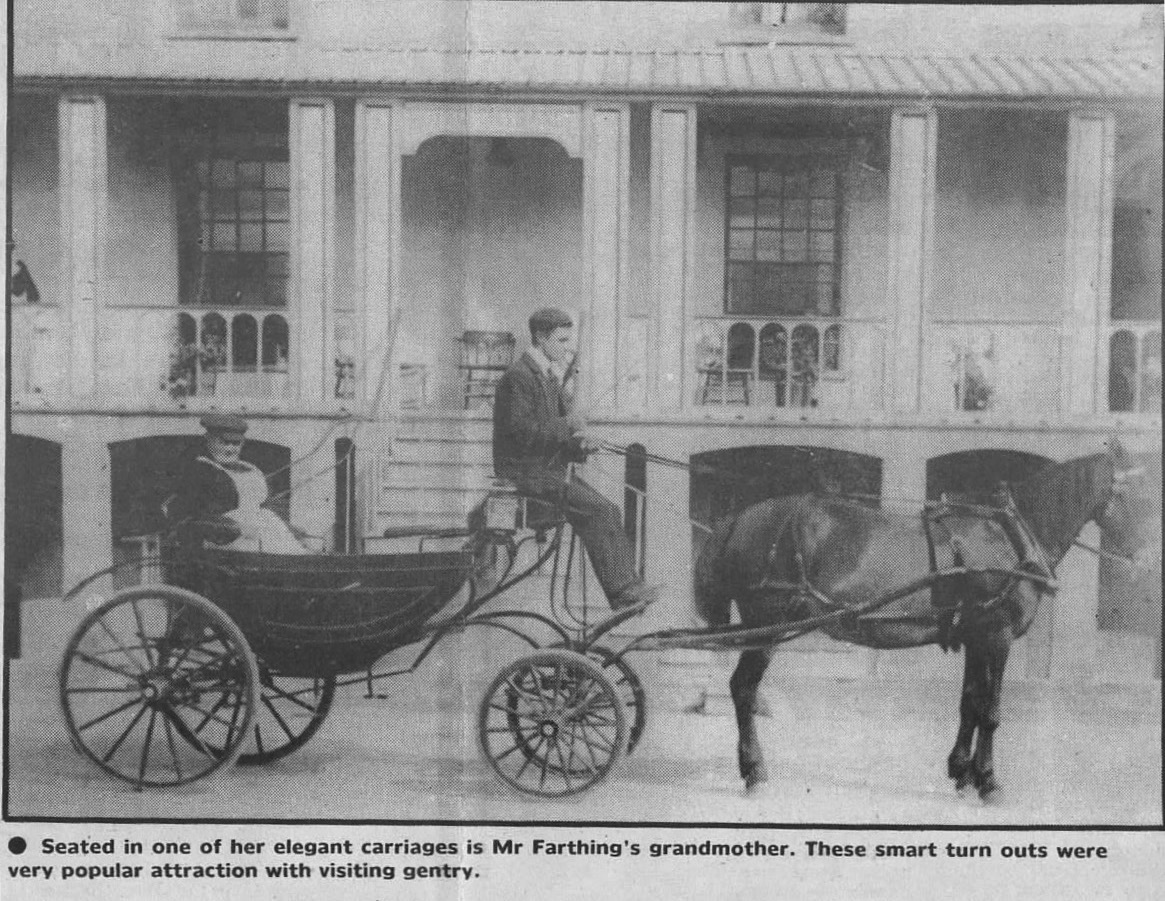
“She then bought more horses and had some donkeys for hire on the beach…..When I was a lad I was always on the beach helping out. One day I was watching a troup of Pierrots setting up their stand when one of them called me over and asked if I could sing. I said I could and he said they needed a child and if I would join in they would give me a stick of nougat. That was my first appearance in show business. But times were never easy for those who had entertainments on the beach. We used to call May and June the doldrums and it was only July and August which were the best months. On September 1st, when the children went back to school, it was as if you had cut the visitors off with a knife. There were almost no cars then and everyone came here by train so when the holidays were over that was the end. On fine, hot days people used to come and stand and stare over the sea wall at the busy scene and say ‘they must be making a fortune’. We called them ‘oncers’ because they only came out once on a hot day and never saw what it was like when the rain was tumbling down.”
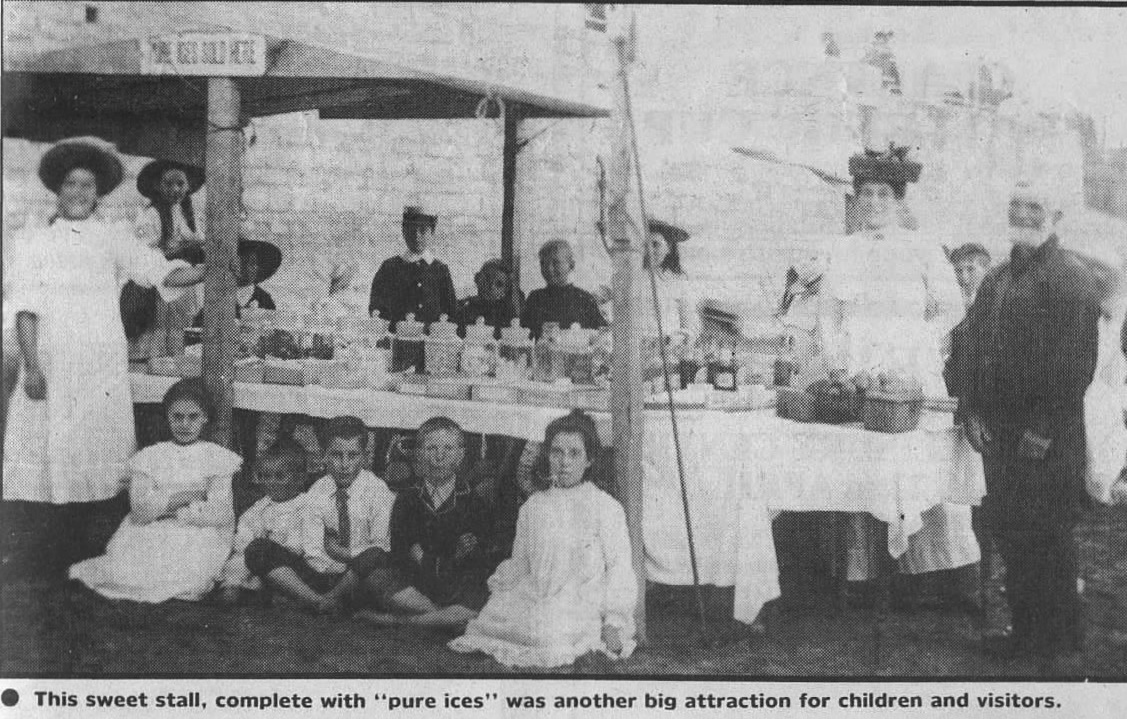
“My Uncle Fred also operated also operated a number of swing boats on the beach, and my mother Bessie had a very popular sweet stall there. Everyone in the family gave a hand with these enterprises, including my brother Bill, who joined up during the first World War and was killed on the Somme in 1915.” (See below)
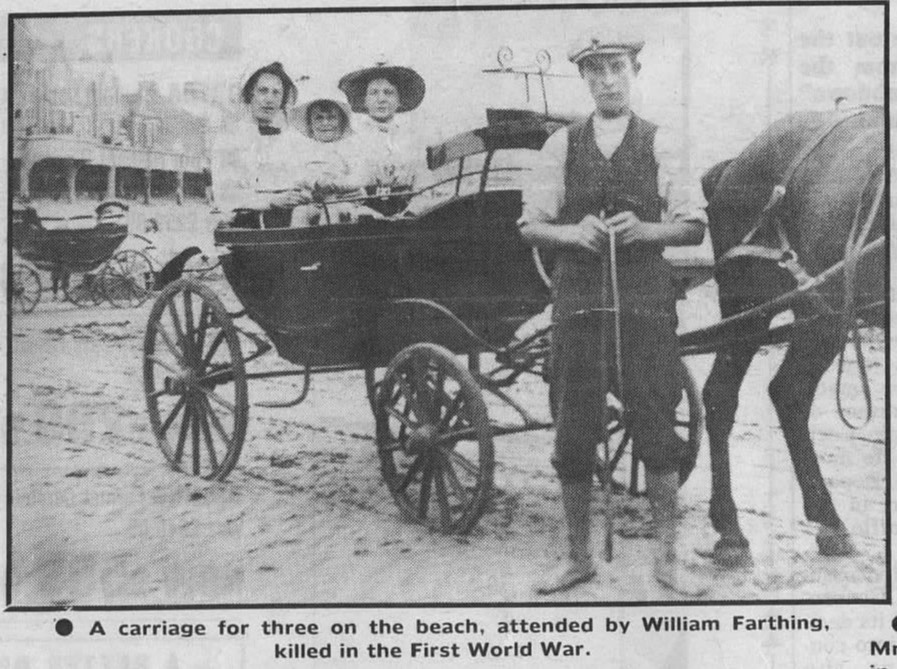
“For the ordinary visitor there was also a line of bathing boxes, cabins on wheels which were dragged into the sea. They were owned by a firm called Burnham Attraction Association and you could hire a bathing costume and towel for sixpence an hour.” Harry also recalled a tent full of distorting mirrors: “It was brought to Burnham by an outsider and it was a sensation. People queued up to pay tuppence a go and came out screaming with laughter”.
At the beginning of WWI due to the recruitment drive for young men Mary was left on her own to manage the horses, donkeys and goat (which was used to pull a children’s cart).
“She couldn’t carry on alone of course and had to put them all up for auction. On the day of the sale there wasn’t a single bid and so they all had to go to the knacker’s yard and the lovely little carriages were all smashed up.”
Mary died in 1915.
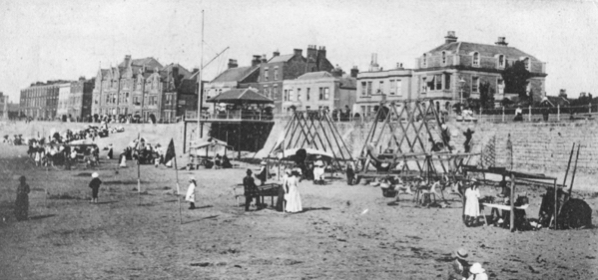
The swing boats and sweets businesses continued after the war, until the local authority decided that traders we not paying enough rent for beach pitches and started an auction system. “Showmen came from all over the country and they paid up to four times what the pitches were worth because they thought they could make a lot of money here. But as the season went on they found it was not so profitable and at the end most of them skipped away without paying the full licence fee. But that was the end of the local stalls and rides.”
See also beach activities.
“My grandfather, Jim, was a master mariner who sailed as captain of a ship called The Railway for many years. It must have been owned by the Somerset and Dorset Line and almost certainly carried coal and rails. He was also for a short time captain of a local passenger vessel called the Sherbro and later had another cargo ship called the First Alpha.”
Harry’s father was a stonemason and builder who lived to be nearly 100. “As a builder and stonemason he was always very much in demand and for years I helped him with many jobs, especially when working on church towers, because we knew how to work together.”
These recollections and photographs were published in the Burnham & Highbridge Weekly News 1990 & 91 in articles by Ivor Punnett (from the Royston Broome Collection)
Below, construction gang on new South Shelter, Harry at far left. We do not know whether his father is in this photograph.
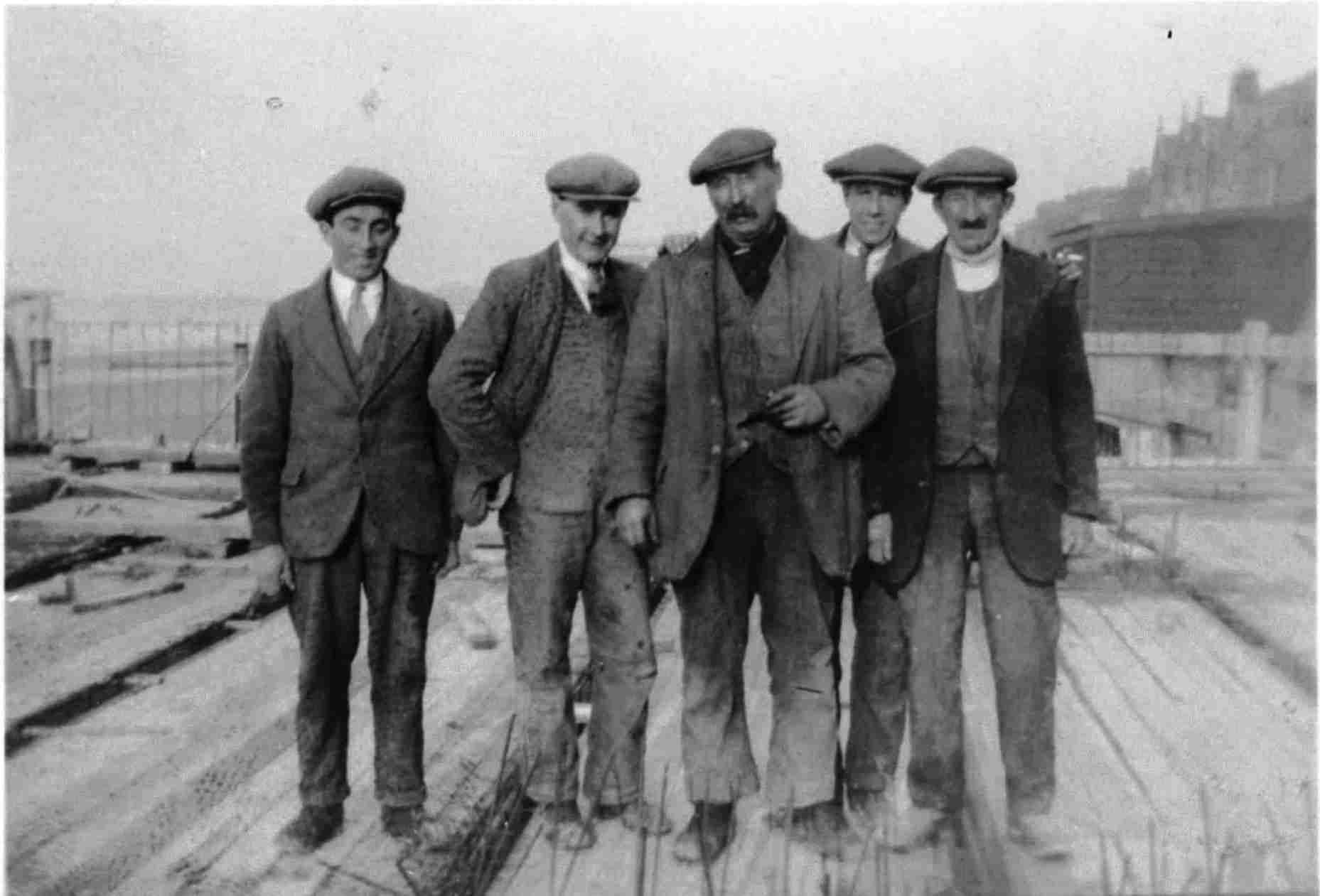
WILLIAM FARTHING
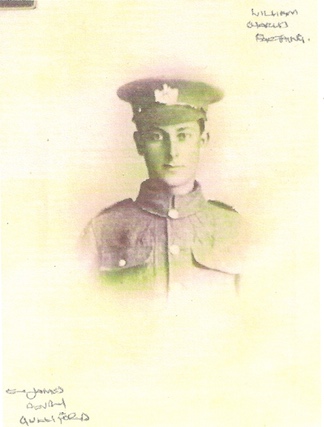
The obituary in the Burnham Gazette in 1916 records his rank as Private in the 1st / 5th Gloucestershire Regiment and his death as 3rd November 1916 rather than 1915. he was buried in the Warlincourt Halte British Military Cemetary (grave ref. IV.A.11).
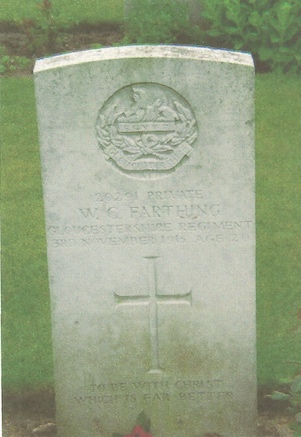
VINCENT FARTHING
Private Vincent John Farthing was also killed during WWI, on 18th September 1918, whilst fighting with the Somerset Light Infantry. His memorial is at Vis-en-Artois. His father is listed by the Commonwealth War Graves Commission as F. Farthing of 2 Chestnut Terrace as Fred Farthing of Berrow Rd. Could this have been Harry’s Uncle Fred, who operated the beach swing boats? However the War Office Register of Soldiers Effects lists his father as James so it remains unclear.

